Company Cyber Security Posture
NANA
NA Company Details
NA
NA
NA
NA
NA
NA
Scan still pending
NA
NA
Between 200 and 800
This score is AI-generated and less favored by cyber insurers, who prefer the TPRM score.
 NA Global Score
NA Global Score.png)

Company Scoring based on AI Models
| Model Name | Date | Description | Current Score Difference | Score |
|---|---|---|---|---|
| AVERAGE-Industry | 03-12-2025 | This score represents the average cybersecurity rating of companies already scanned within the same industry. It provides a benchmark to compare an individual company's security posture against its industry peers. | N/A | Between 200 and 800 |
Company Cyber Security News & History
| Entity | Type | Severity | Impact | Seen | Url ID | Details | View |
|---|
Company Subsidiaries

NA
Access Data Using Our API

Get company history
.png)
NA Cyber Security News
Monash University Alumni Insight Series: Adapting Practical Challenges in Real-World Cybersecurity
The event was attended by 59 Indonesian alumni. The cybersecurity landscape in Indonesia is evolving rapidly, with industries facing ...
CIMB Group Holdings Berhad – Digital Transformation Strategies
The CIMB digital transformation strategies report is a reference point to understand a company/competitor's digital strategy. It will also help ...
Thales in Indonesia
Thales has a long history with the Indonesian Navy, and is the appointed supplier of combat management systems for all major warships in the Navy's fleet.
CIMB Niaga leads the way in captivating Indonesia’s youth
SPEAKING of innovative strategies at the recent Asian Banking and Finance Forum in Indonesia, CIMB Niaga was candid about reeling in digitally ...
CIMB Niaga and Liquid Group spearhead Singapore-Indonesia payments
CIMB Niaga and Liquid Group have formed a strategic partnership to spearhead cross-border (quick response) QR payments between Singapore and ...
Winning Combinations: Check Point Customers and Their Advanced Security Solutions
Authored by Kristin Owens, Head of Functional Marketing & Executive Engagement, Check Point.
Cybersecurity in Indonesia
Data protection and cybersecurity are evolving areas of regulation in Asia. Here, experts shed light on emerging jurisprudence in the ...
Outstanding banking and finance industry champions crowned at Asian Banking & Finance Awards 2024
This prestigious awards programme is renowned as the most prestigious gathering of senior banking executives from all over Asia, recognising the ...

NA Similar Companies
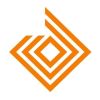
Access Bank Plc
Access Bank Plc is a full service commercial Bank operating through a network of over 600 branches and service outlets located in major centres across Nigeria, Sub Saharan Africa and the United Kingdom. Listed on the Nigerian Stock Exchange in 1998, the Bank serves its various markets through 5 busi
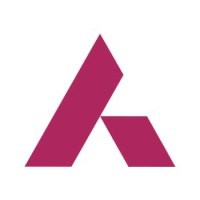
Axis Bank
Axis Bank is the third largest private sector bank in India. The Bank offers the entire spectrum of financial services to customer segments covering Large and Mid-Corporates, MSME, Agriculture and Retail Businesses. The Bank has a large footprint of 5000 domestic branches (including extension count
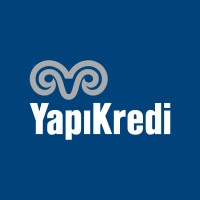
Yapı Kredi
Yapı Kredi has been sustainably strengthening its market positioning in the sector since its establishment in 1944 through a customer-centric approach and focus on innovation. Yapı Kredi is the 3rd largest private bank in Turkey with total assets worth TL 411 billion as of the end of 2019. Constantl

Maybank
Maybank Group is the leading financial services provider in Malaysia catering to the needs of consumers, investors, entrepreneurs, non-profit organisations and corporations. The Group, which has expanded internationally, has the largest network among Malaysian banks of over 2,400 branches and office
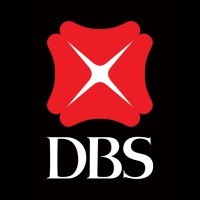
DBS Bank
DBS is a leading financial services group in Asia with a presence in 19 markets. Headquartered and listed in Singapore, DBS is in the three key Asian axes of growth: Greater China, Southeast Asia and South Asia. The bank's "AA-" and "Aa1" credit ratings are among the highest in the world. Recognise
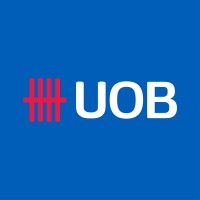
UOB
We’re here to do Right By You. At UOB, we aspire to build a better future for the people and businesses in the region. Through our extensive network and suite of capabilities, we offer financial solutions to the people and businesses within, and connecting with ASEAN. We create solutions tail

Frequently Asked Questions
Explore insights on cybersecurity incidents, risk posture, and Rankiteo's assessments.
NA CyberSecurity History Information
How many cyber incidents has NA faced?
Total Incidents: According to Rankiteo, NA has faced 0 incidents in the past.
What types of cybersecurity incidents have occurred at NA?
Incident Types: The types of cybersecurity incidents that have occurred include .
Additional Questions
What Do We Measure?
















Every week, Rankiteo analyzes billions of signals to give organizations a sharper, faster view of emerging risks. With deeper, more actionable intelligence at their fingertips, security teams can outpace threat actors, respond instantly to Zero-Day attacks, and dramatically shrink their risk exposure window.
These are some of the factors we use to calculate the overall score:
Identify exposed access points, detect misconfigured SSL certificates, and uncover vulnerabilities across the network infrastructure.
Gain visibility into the software components used within an organization to detect vulnerabilities, manage risk, and ensure supply chain security.
Monitor and manage all IT assets and their configurations to ensure accurate, real-time visibility across the company's technology environment.
Leverage real-time insights on active threats, malware campaigns, and emerging vulnerabilities to proactively defend against evolving cyberattacks.




